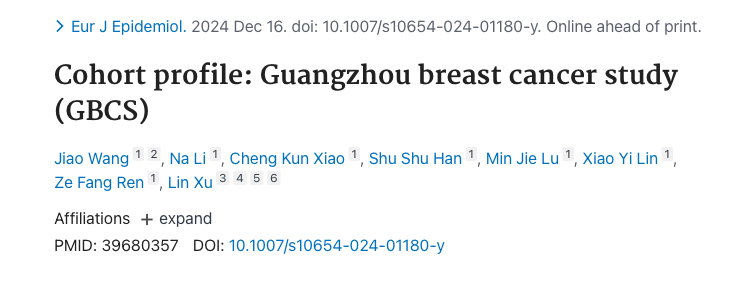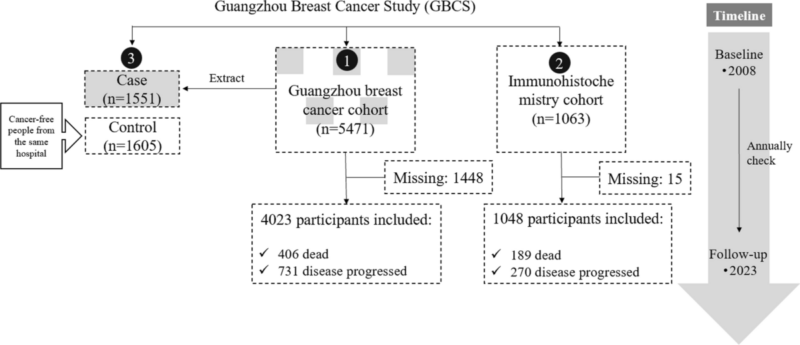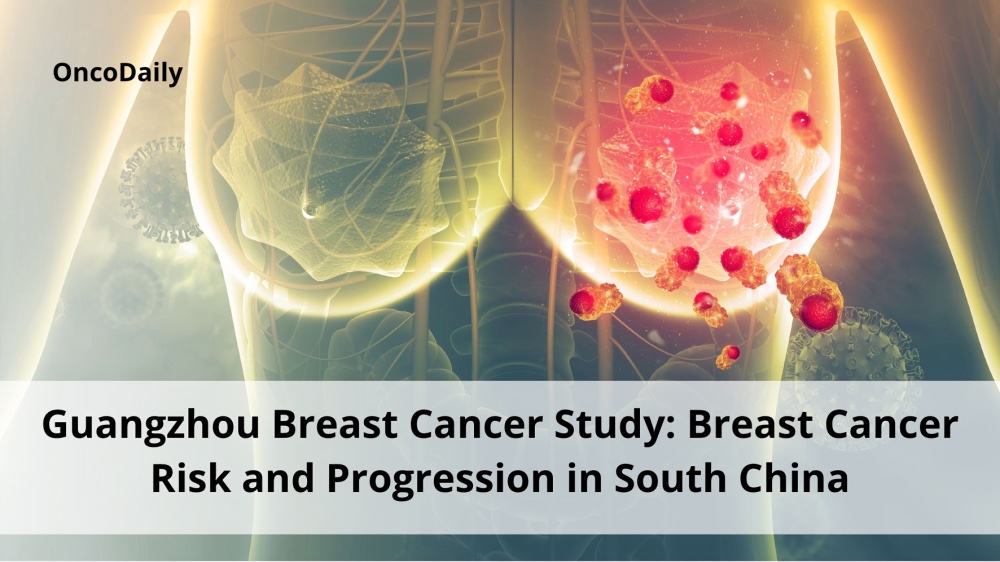Unraveling Breast Cancer Risk and Progression in South China
The Guangzhou Breast Cancer Study (GBCS) is an initiative designed to address the rising incidence of breast cancer in South China.
By integrating large-scale patient data, the study aims to uncover key risk factors, disease mechanisms, and potential avenues for individualized prevention strategies.
With over 8,000 participants across three interconnected research components, the GBCS stands as one of the region’s most ambitious efforts to improve breast cancer outcomes and inform public health policies.
Cohort profile: Guangzhou breast cancer study (GBCS)
Authors: Jiao Wang, Na Li, Cheng Kun Xiao, Shu Shu Han, Min Jie Lu, Xiao Yi Lin, Ze Fang Ren, Lin XU

The Guangzhou Breast Cancer Study (GBCS) is a patient-based prospective cohort study aimed at identifying risk factors and mechanisms for breast cancer incidence and prognosis in South China. Initiated in 2008 in Guangzhou, the study comprises three components:
- Guangzhou Breast Cancer Cohort: 5471 breast cancer patients.
- Case-Control Study: 1551 cases and 1605 controls.
- Immunohistochemistry (IHC) Cohort: 1063 breast cancer patients.
Most participants are between 41 and 60 years old, reflecting the age group most affected by breast cancer in South China.
Comprehensive Follow-Up and Data Collection
The GBCS employs a rigorous follow-up schedule: every three months in the first year, every six months in years two and three, and annually thereafter. As of 2023, retention rates are commendable, with 73.5% for the breast cancer cohort and 98.6% for the IHC cohort.
Baseline data collection includes demographic information and risk factors, while follow-ups track survival outcomes, treatment details, disease progression, occupational history, lifestyle changes post-diagnosis, and laboratory metrics such as genetic and environmental markers.

Impact and Collaboration Opportunities
High retention rates boost the study’s reliability, while the breadth of collected data supports comprehensive analysis of breast cancer risk and progression. By focusing on the demographic most affected, the GBCS ensures its findings are highly relevant.
The study actively seeks international collaboration and invites researchers to contribute to its extensive database. Those interested are encouraged to contact the lead investigator to explore potential research partnerships.
The GBCS is dedicated to keeping participants actively engaged and collecting comprehensive data, allowing for a deeper understanding of the factors that influence breast cancer risk and progression. This research is expected to drive the development of tailored prevention strategies, enhance patient care, and contribute to shaping public health policies worldwide.
Further Reading:
Immunotherapy for Breast Cancer: Types, Success Rate, Side Effects & More


